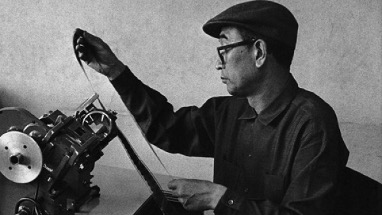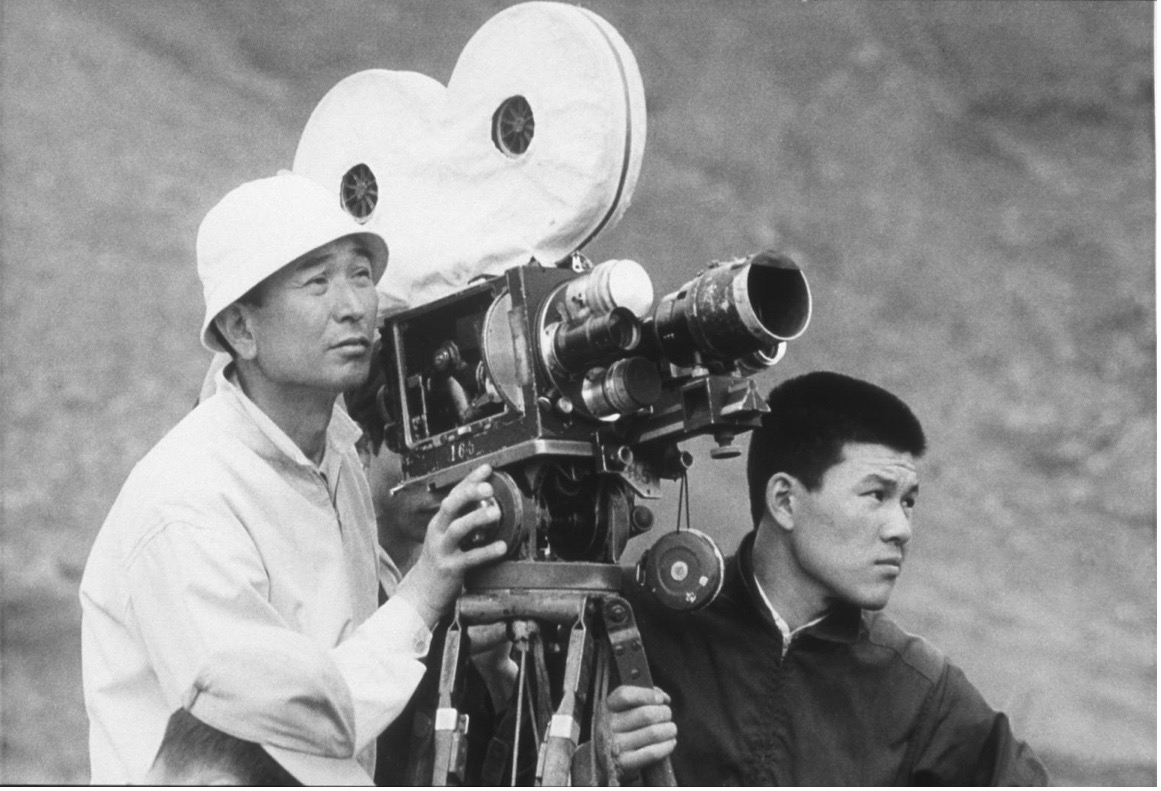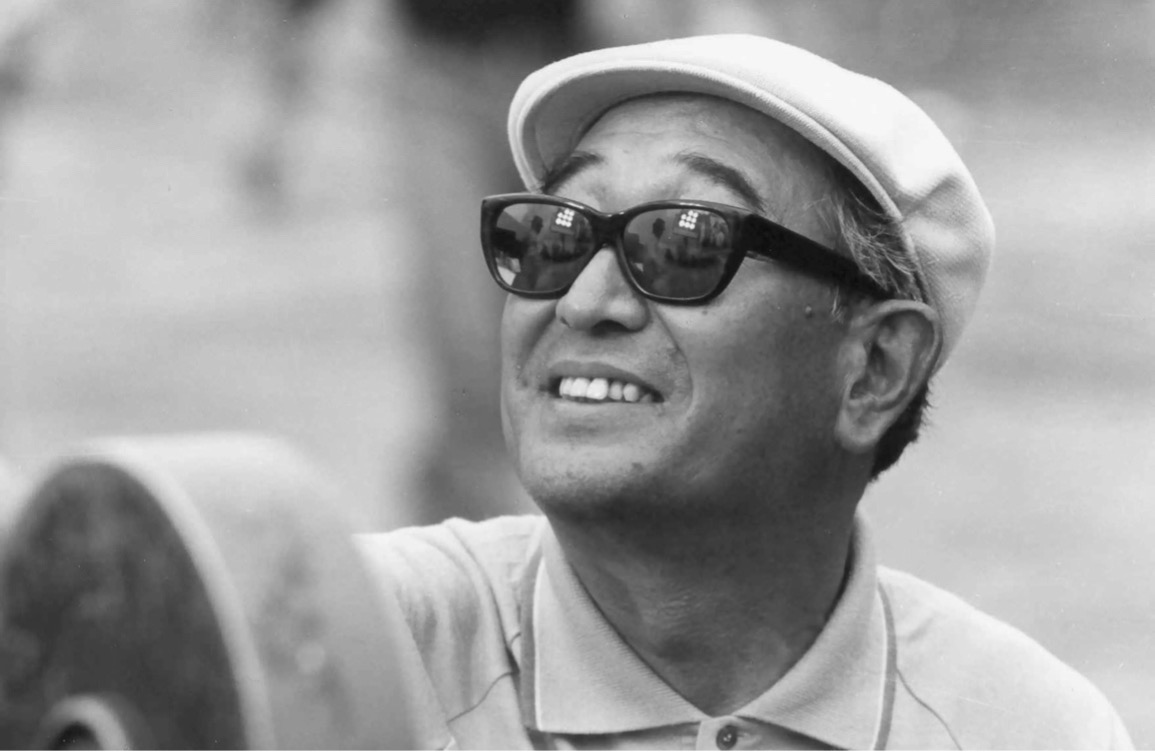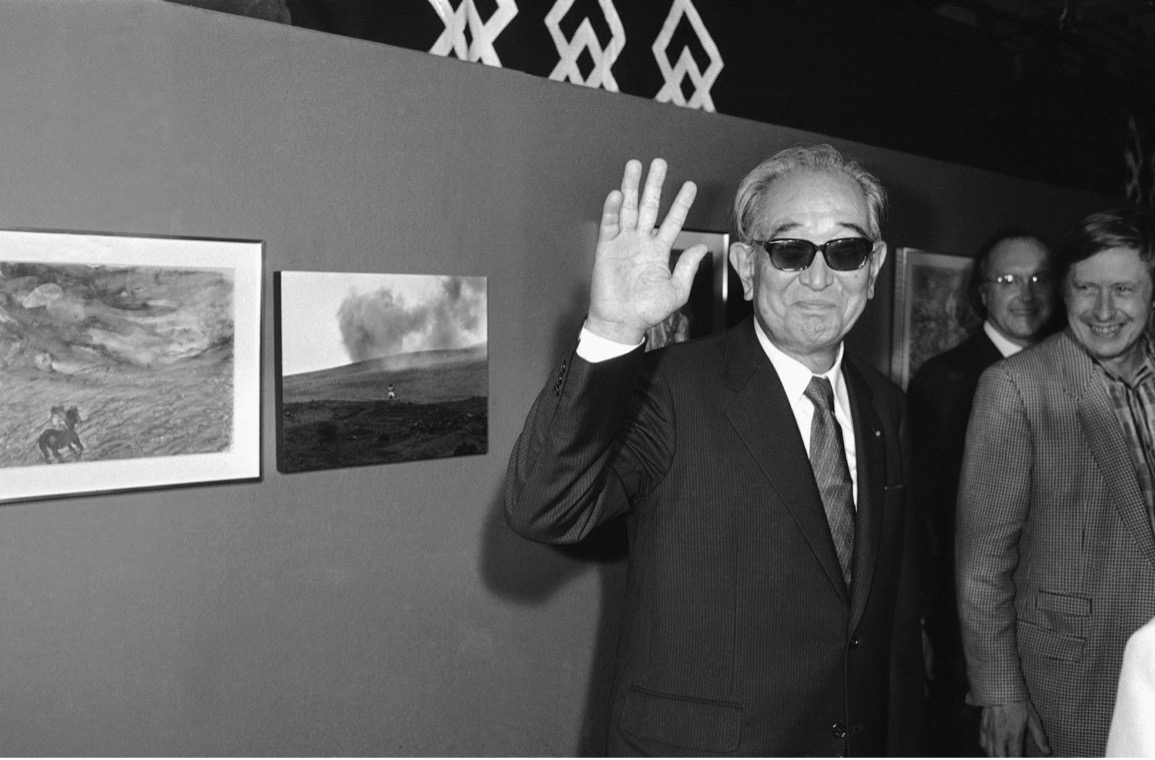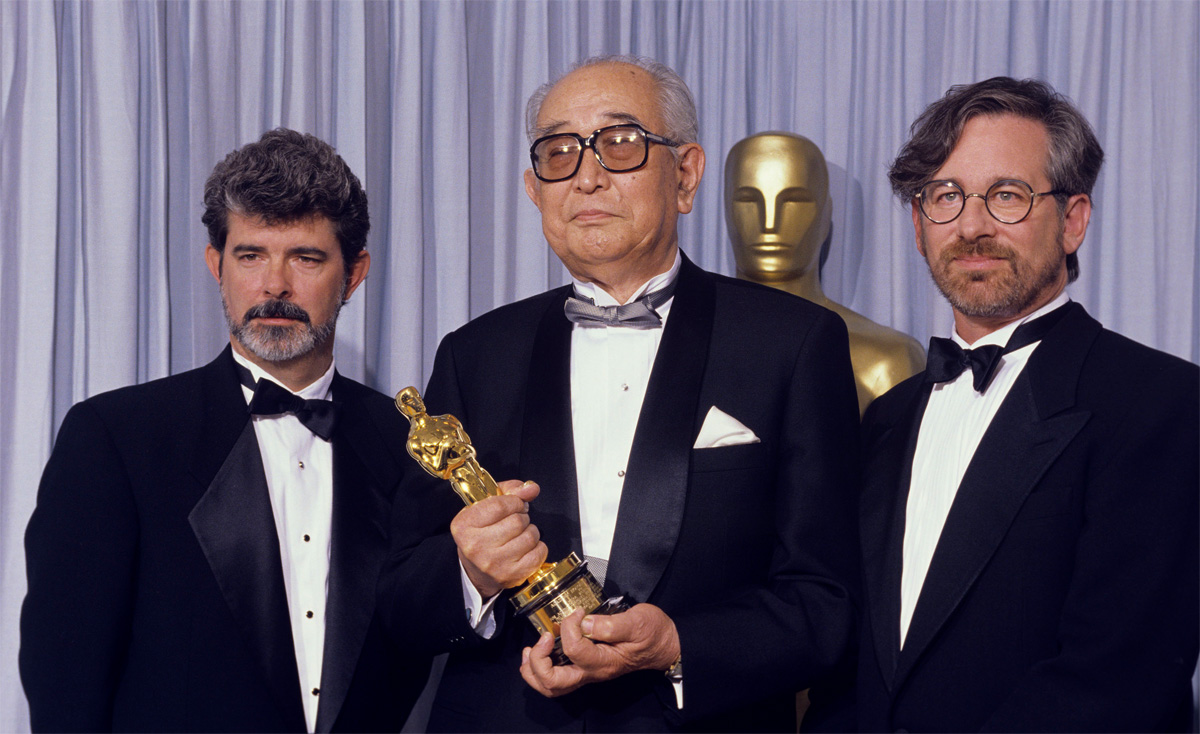Clip from an interview with Kurosawa
The video has been removed from the print
Video description
The video shows clip from an interview with Akira Kurosawa. He is wearing glasses, a patterned shirt and is sitting in a chair. The background is blurred but shows shelves and what appears to be a library or study setting. He is speaking japanese, this is the translation of what he is saying:
The most difficult thing is to raise the level of the audience’s appreciation of film. That’s a tremendous thing to pull off. It’s easy to lower it, and that’s what has happened. Movie theaters are playing only the awful stuff, and audiences today are apt to actually believe that that’s cinema. So it’s necessary to raise their awareness of what cinema really is. And educating people in that regard is an enormously difficult and challenging task.
